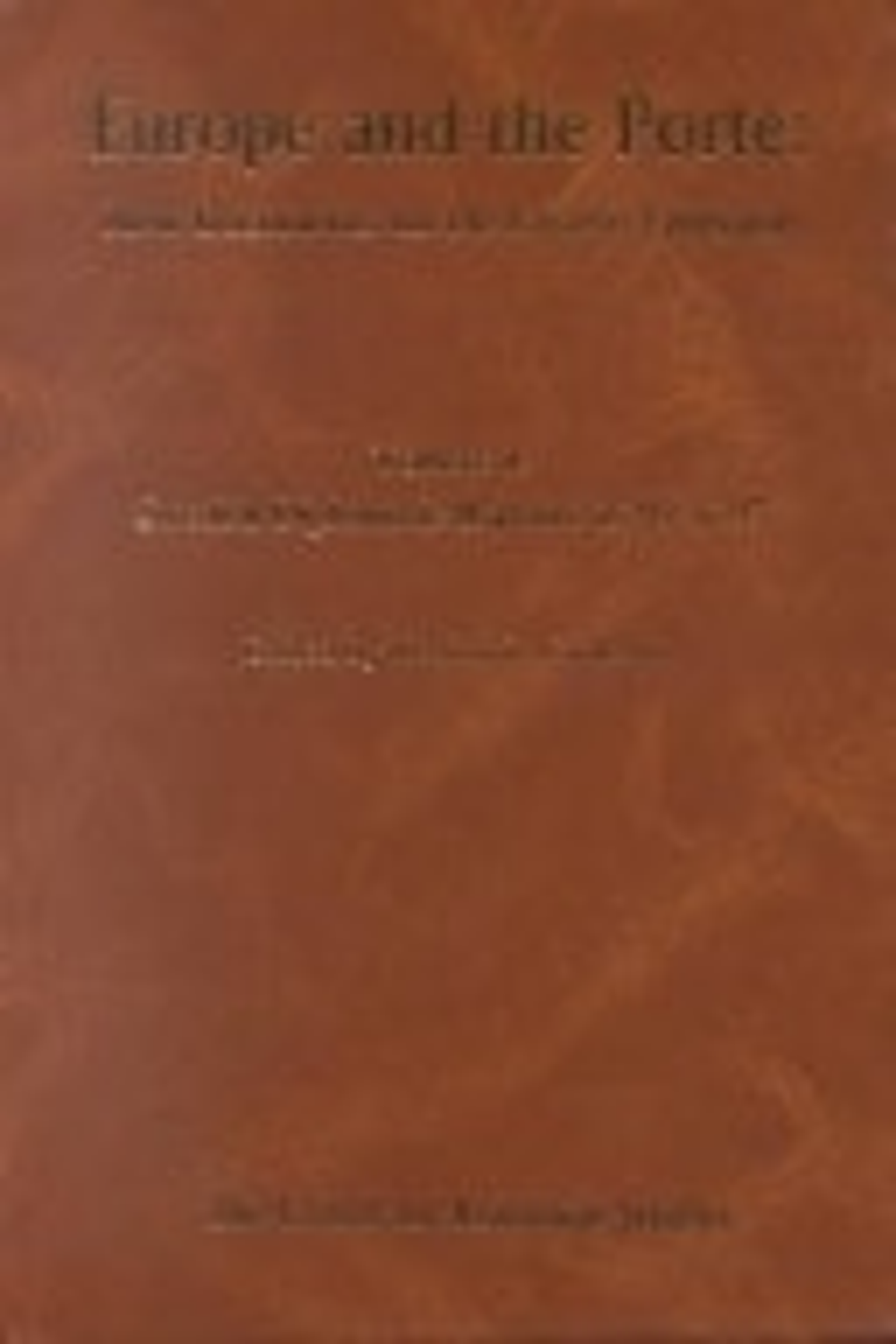One of the most pressing questions of Europe during the late 18th century was what to do about the Ottoman Empire. Ciobanu offers previously neglected perspectives by collecting 56 reports and dispatches from Ignatium Mouradgea, the Swedish envoy in Istanbul from 1795 to 1799. He found them at the Swedish National Archive. In Berlin, he also found diplomatic reports of the Prussian extraordinary envoy, Friedrich Wilhelm Ernst von Knobelsdorff, for the same period in Geheimes Staatsarchiv Preussischer Kulturbesitz , and appends those in a hundred pages. The two volumes are paged and indexed separately. Distributed in the US by ISBS. Annotation c. Book News, Inc., Portland, OR (booknews.com)
Delve into the intricate world of 18th-century European diplomacy with "Europe and the Porte: New Documents on the Eastern Question," a meticulously compiled and edited collection by Veniamin Ciobanu. This bilingual (French and English) edition offers a fresh and insightful perspective on the Eastern Question, a pivotal issue that dominated European politics during this era. At the heart of this work lies a treasure trove of previously unexplored primary source material unearthed by Ciobanu himself from the depths of European archives. The core of the book features 56 reports and dispatches penned by Ignatium Mouradgea, the Swedish envoy stationed in Istanbul (then Constantinople), the vibrant and strategically crucial capital of the Ottoman Empire, between 1795 and 1799. Mouradgea's observations, discovered within the Swedish National Archive, provide a unique window into the inner workings of the Ottoman court and its complex relationship with the major European powers. These are not just dry diplomatic pronouncements; they offer nuanced portrayals of court intrigue, political maneuvering, and the shifting alliances that characterized the period. Ciobanu enhances Mouradgea's insights by incorporating the diplomatic reports of Friedrich Wilhelm Ernst von Knobelsdorff, the Prussian extraordinary envoy, covering the same timeframe. These reports, found in the Geheimes Staatsarchiv Preussischer Kulturbesitz in Berlin, present a contrasting yet complementary viewpoint, reflecting Prussia's own strategic interests and its evolving understanding of the Ottoman Empire's role in the European balance of power. Appended in a substantial section of approximately one hundred pages, Knobelsdorff's dispatches add considerable depth and breadth to the overall narrative. The "Eastern Question" revolved around the fate of the declining Ottoman Empire and the competing interests of European powers vying for influence in the region. As the Ottoman Empire weakened, European nations such as Russia, Austria, France, and Great Britain sought to expand their own territories and commercial interests at the expense of the Ottomans. This power struggle had far-reaching consequences for the political landscape of Europe and the Middle East. This collection of documents sheds light on how Sweden and Prussia, often considered peripheral players in the "Great Game," viewed the Ottoman Empire and navigated the complex web of European diplomacy. It provides invaluable context for understanding the events leading up to and following the Napoleonic Wars. This hardback edition from the Center for Romanian Studies is meticulously indexed, facilitating efficient research and navigation for scholars and enthusiasts alike. The bilingual format makes these crucial historical documents accessible to a wider audience, fostering a deeper understanding of this pivotal period in European history. The reports offer insights into not only the relations between the Ottoman Empire and Europe, but also provide detailed information about daily life, customs, and society in the Ottoman Empire at the time. This makes the book a valuable resource for scholars of Ottoman history, Turkish studies, and 18th-century European history. The detailed observations on trade, military capabilities, and political climate in the Ottoman Empire gives the reader a much more intimate understanding of how European powers were assessing the region during this time. This book will be extremely valuable for researchers, historians, and anyone with an interest in the intricate history of Europe and the Ottoman Empire.

